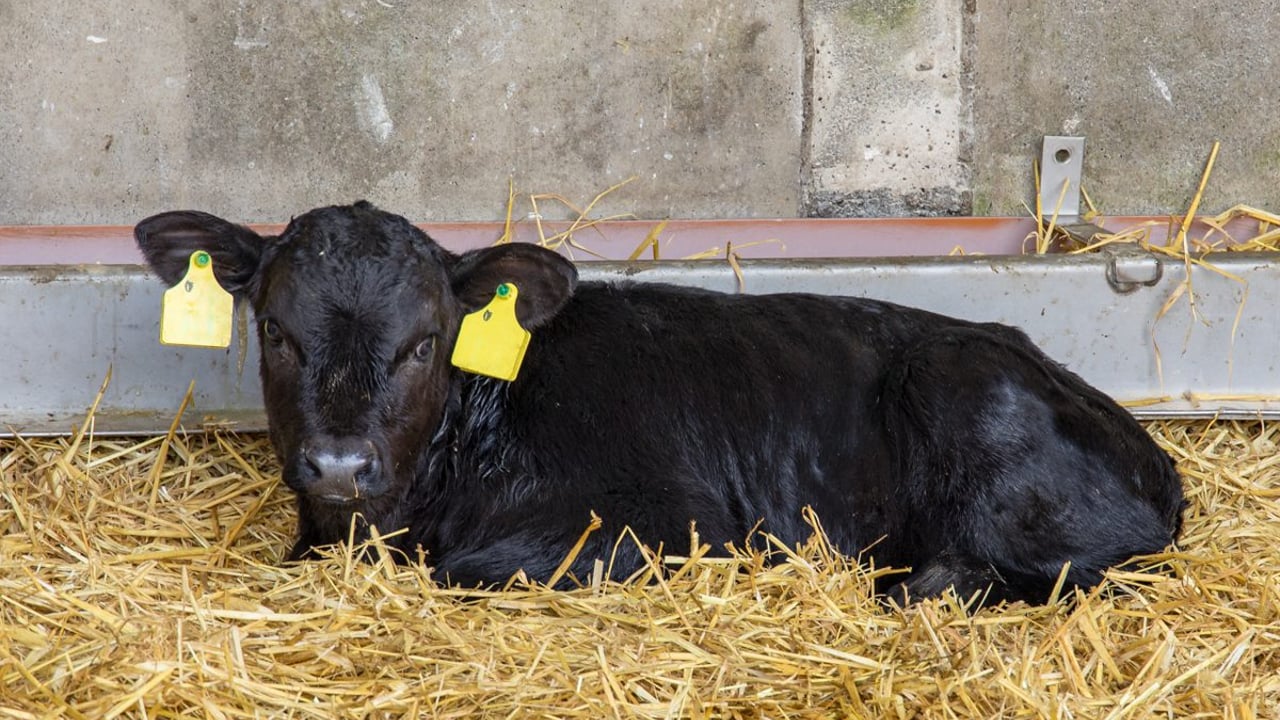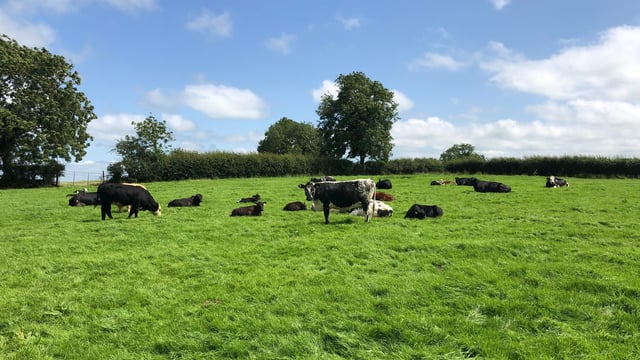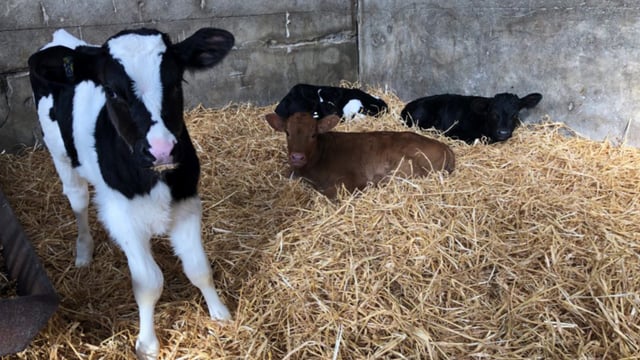Dairy advice: Eliminating the enemy that is calf scour
Calf scour is a well-known enemy in farm yards across the country, with the disease holding the record for the number one cause of sickness and death in younger calves.
There are still a number of autumn calving herds calving away, and with plenty of calves on the ground at this time of year, it is crucial to eliminate and prevent the disease from spreading.
Scour refers to a watery or custard-like faeces and is the result from a badly damaged gut, which leads to a loss in function. This gut damage is caused by infectious agents such as parasites, viruses and bacteria.
When an intestine is not functioning properly, it causes the calf to lose water and salts in the form of diarrhoea and once calf scour occurs, it will continue until the intestine heals in which there is no treatment to speed up the repair.
Rotavirus and Cryptosporidia are by far the most common causes of scour diagnosed in calves in the regional veterinary laboratories.
Calf scour
Diagnosing calf scour is the first call to action and can be done by submitting a number of samples from affected animals, although, animals that have been sick for a while, are not suitable for sampling.
Ideally, three to five scour samples should be collected from early scouring and untreated calves and the samples should only be submitted in screw-top plastic containers.
Five to 10 blood samples can be taken from calves under 10-days-old to see if they have received adequate colostrum.
If a calf has calf scour, they should be removed from the group to stop the infection spreading and to give the calf a better chance of recovery.
The calf's salts and fluids will have to be replaced with an oral rehydration solution as soon as the calf starts scouring and while it is scouring.
Healthy calves need at least 6L of good quality milk a day and scouring calves need at least 4L of additional fluids to replace the lost fluids.
The important thing is to keep feeding milk to the calf as it does not cause, worsen or prolong scour, and actually helps with the healing of the intestine.
Prevention
Vaccines against scour-causing viruses and bacteria are available, but you will need to know the cause of scour before you choose a vaccine, and a vaccine against cryptosporidia has only recently come on the market.
An oral dose of Halofuginone is licensed to protect against Cryptosporidosis, but should be given as a preventative and won't solve your problems, unless general hygiene is not improved.
Basic hygiene rules to keep calf scour at bay are as follows:
- Good colostrum management and ensuring the calf is receiving it is crucial;
- Individual or group calf pens must be cleaned out between calves;
- Clean, dry bedding is critical wherever your calf is housed and they should be cleaned out regularly;
- Pens should be generously topped up with a straw bed. The knee test should be carried out and the bed needs to be dry enough so that your knees do not get wet;
- It is important to have your calf housing as clean at the end of the season as at the start and to not let it slip up when calving gets busy;
- Do not forget to keep the feeding equipment clean.
According to Teagasc, calf care accounts for over 20% of the spring calving workload and it is not much different for the autumn calving season.
A scour outbreak will significantly increase the workload and stress at a time where everyone is already under pressure, and therefore, prevention of calf scour is crucial.











